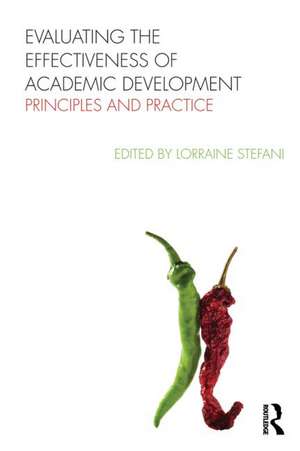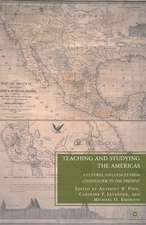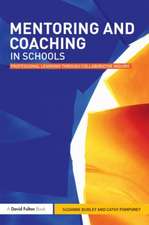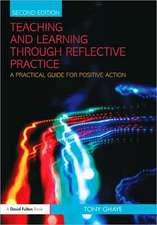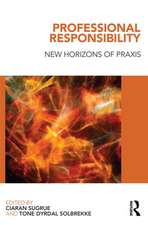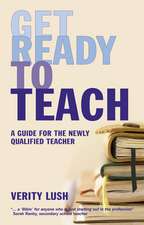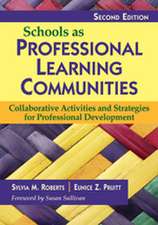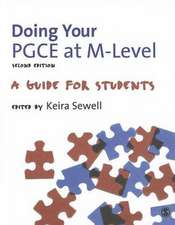Evaluating the Effectiveness of Academic Development: Principles and Practice
Editat de Lorraine Stefanien Limba Engleză Paperback – 30 aug 2010
Written for Academic Developers, academic administrators and others responsible for promoting organizational change, Evaluating the Effectiveness of Academic Development is a professional guide that shares best practice advice and provides developers with useful frameworks for effective evaluation and monitoring of their work.
Through case studies and up-to-date examples from experts in the field, this collection explores the nuances of evaluative practice and the tensions inherent in claiming a causal link between academic development and organizational transformation. As higher education institutions continue to seek effective ways to determine the impact of academic development on organizational transformation in general and student learning in particular, Evaluating the Effectiveness of Academic Development is sure to be an invaluable resource.
| Toate formatele și edițiile | Preț | Express |
|---|---|---|
| Paperback (1) | 438.65 lei 6-8 săpt. | |
| Taylor & Francis – 30 aug 2010 | 438.65 lei 6-8 săpt. | |
| Hardback (1) | 1111.27 lei 6-8 săpt. | |
| Taylor & Francis – 30 aug 2010 | 1111.27 lei 6-8 săpt. |
Preț: 438.65 lei
Nou
Puncte Express: 658
Preț estimativ în valută:
83.96€ • 91.23$ • 70.57£
83.96€ • 91.23$ • 70.57£
Carte tipărită la comandă
Livrare economică 21 aprilie-05 mai
Preluare comenzi: 021 569.72.76
Specificații
ISBN-13: 9780415872072
ISBN-10: 0415872073
Pagini: 256
Ilustrații: 8 tables and 8 line drawings
Dimensiuni: 152 x 229 x 18 mm
Greutate: 0.36 kg
Ediția:1
Editura: Taylor & Francis
Colecția Routledge
Locul publicării:Oxford, United Kingdom
ISBN-10: 0415872073
Pagini: 256
Ilustrații: 8 tables and 8 line drawings
Dimensiuni: 152 x 229 x 18 mm
Greutate: 0.36 kg
Ediția:1
Editura: Taylor & Francis
Colecția Routledge
Locul publicării:Oxford, United Kingdom
Public țintă
Academic and Professional Practice & DevelopmentCuprins
1. Evaluating the effectiveness of academic development: an overview, Lorraine Stefani
2. Locating Academic Development: the first step in evaluation, Shelda Debowski
3. The Quality Agenda: where does academic development sit? George Gordon
4. Demonstrating Fitness for Purpose: phronesis and authenticity as overarching purposes, Carolin Kreber
5. Using Student Survey Data to Shape Priorities and Approaches, Kerri-Lee Krause
6. Innovation and Change: responding to a digital environment, Cathy Gunn
Case Study 1. Whaia te pae tawhiti: Māori Academic Development at the University of Auckland, Matiu Ratima
Case Study 2. Academic Partnership: peer mentoring with early-career academics, Barbara Kensington-Miller
Case Study 3. Tending the Secret Garden: evaluating a doctoral skills program, Frances Kelly, Ian Brailsford and Susan Carter
Case Study 4. Evaluation as Bricolage: cobbling together a strategy for appraising supervision development, Barbara Grant
Case Study 5. Archiving for the Future: a longitudinal approach to evaluating a postgraduate certificate program, Helen Sword
Case Study 6. Tracking the Invisible: an elearning group’s approach to evaluation, Cathy Gunn and Claire Donald
Case Study 7. Continuous Improvement Projects: whose evaluation matters? Lorraine Stefani
Case Study 8. Leadership Programs: evaluation as a way forward, Linda McLain
7. Accrediation, Accountability and Assessment: addressing multiple agendas, Claudia Stanny and Jane Halonen
8. An Institutional Program: a national model for evaluation? Roni Bamber
9. Evaluation matters in a national, funded academic development project, Kogi Nadoo and Alison Holmes
10. Impact Evaluation and its Implications, Kathleen Gray and Alex Radloff
Endnote, Lorraine Stefani
2. Locating Academic Development: the first step in evaluation, Shelda Debowski
3. The Quality Agenda: where does academic development sit? George Gordon
4. Demonstrating Fitness for Purpose: phronesis and authenticity as overarching purposes, Carolin Kreber
5. Using Student Survey Data to Shape Priorities and Approaches, Kerri-Lee Krause
6. Innovation and Change: responding to a digital environment, Cathy Gunn
Case Study 1. Whaia te pae tawhiti: Māori Academic Development at the University of Auckland, Matiu Ratima
Case Study 2. Academic Partnership: peer mentoring with early-career academics, Barbara Kensington-Miller
Case Study 3. Tending the Secret Garden: evaluating a doctoral skills program, Frances Kelly, Ian Brailsford and Susan Carter
Case Study 4. Evaluation as Bricolage: cobbling together a strategy for appraising supervision development, Barbara Grant
Case Study 5. Archiving for the Future: a longitudinal approach to evaluating a postgraduate certificate program, Helen Sword
Case Study 6. Tracking the Invisible: an elearning group’s approach to evaluation, Cathy Gunn and Claire Donald
Case Study 7. Continuous Improvement Projects: whose evaluation matters? Lorraine Stefani
Case Study 8. Leadership Programs: evaluation as a way forward, Linda McLain
7. Accrediation, Accountability and Assessment: addressing multiple agendas, Claudia Stanny and Jane Halonen
8. An Institutional Program: a national model for evaluation? Roni Bamber
9. Evaluation matters in a national, funded academic development project, Kogi Nadoo and Alison Holmes
10. Impact Evaluation and its Implications, Kathleen Gray and Alex Radloff
Endnote, Lorraine Stefani
Notă biografică
Lorraine Stefani is Director and Professor of the Centre for Academic Development (CAD) at the University of Auckland.
Descriere
Written for academic developers, academic administrators and others responsible for promoting organizational change, Evaluating the Effectiveness of Academic Development shares best practice advice and frameworks for evaluation and monitoring.
